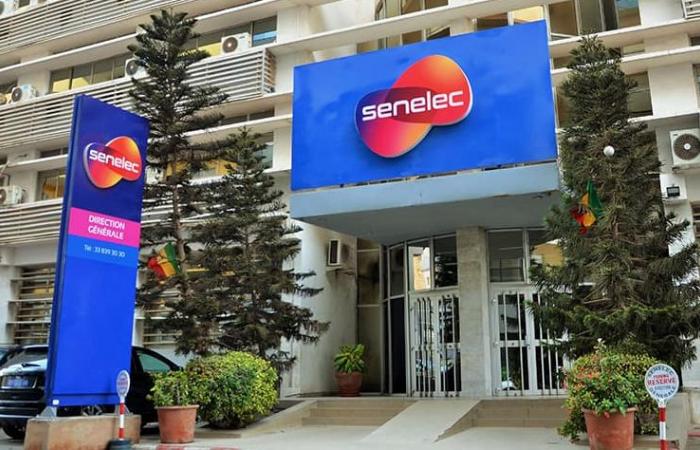During your speech at the Capm meetings, you affirmed that parapublic companies such as Senelec, La Poste, etc., constitute burdens for the country.
Senelec is an industrial company which has greatly contributed to the economic and social development of Senegal, and continues to be an essential pillar of development.
Indeed, from 2012 to 2020, the rural electrification rate increased from 28 to 60% with the introduction of the energy mix, the urban rate from 91 to 98%.
All the indicators contained in the performance contract signed between Senelec and the State of Senegal under the supervision of the World Bank, such as the availability rate of the groups, the efficiency rate of the transport and distribution network, the troubleshooting time of customers, were reached and even exceeded.
As a reminder, the years 1983 to 2005 were dark years for Senelec, due to the constant increase in imported fuel and the scarcity of investments imposed by the diktat of the World Bank and the IMF, due to non-privatization. of the sector.
As you know, electricity is a sector of sovereignty, and privatizing it is like handing over the keys to development to private individuals, which must be avoided because the experience with the Elyo Hydro Québec group was a patent failure, and plunged Senelec into unprecedented disorganization, with an abysmal deficit of 79 billion without any investment.
From 2005, investments resumed with the arrival of President Wade, and in 2011, after the electricity riots, the Takkal Plan was developed with the help of Senelec workers and funding was obtained to carry out the projects. investments in transport, distribution and commercial and thus support the recovery of Senelec, with a drop observed in the cost of fuel.
Mr. President, we must not be afraid of electricity subsidies, even if they amount to 700 billion, because it is normal in a small country under construction which imports fuel. It is to support the development of the country, and today, by the grace of the Almighty, the All-Merciful, we have oil and gas, and if this windfall is well managed, the cost of electricity will drop drastically and consequently by 2035, the subsidy will disappear.
In reality, Senelec’s main problem is in the cost structure.
It is fuel which is the most expensive factor, almost 60% of the cost, and it is normal that the State subsidizes the consumption of households and businesses, otherwise Senelec would sell at a loss with a tariff of 116, 08 F/Kwh for households.
Also, it must be emphasized that the cost of personnel, which we talk about so much and which arouses a lot of passion, only represents 8% of turnover, whereas in all electricity companies, it is between 11 and 18%. , or even 20%.
Mr. President, the challenges today for universal access to electricity are:
Quickly build the gas network to supply gas power stations and reduce the cost of Kwh production, also review contracts with Ipps (Independent Producers) who sell at exorbitant prices to Senelec;
Build new power plants to secure electricity production for the country, because Senelec’s production is low, 1/3, compared to that of Ipp;
Open up 40% of capital in subsidiaries to finance investments and enable better management with private parties;
Reduce non-technical losses (fraud) for better profitability for Senelec;
Review the management of the company or subsidiaries with the values of fairness and transparency;
Review the Electricity Code, law 31-2021 in its articles 11, 16 on the liberalization of distribution and the prerogatives granted to Crse and the Ministry of Oil which transfer operating and management activities while they are administrative entities;
Review the articles on network access to third parties which, in the long term, will lead to the death of the electricity industry and consequently the lack of universal access to electricity which is nevertheless the first objective of the reform.
In conclusion, Mr. President, we must not venture into a reform whose only objective is a liberalization of the electricity sub-sector which can only benefit private individuals who will raise the cost of electricity. Senegal is a small country under construction which must support its vital sectors such as health, education, electricity, to ensure its economic development.
Senelec management has taken a big step forward from 2012 to the present. And, Senelec’s problem is not organizational, it was mainly the importation of fuel, and today that we have gas, the problem is behind us. The liberalization of the sub-sector will be fraught with danger for our weak economy, even in France, the State has a majority in Edf, with 70% of the capital. The model proposed by Mcc has failed even in Europe, even more so in a country of 18 million inhabitants with a Senelec of 3000 employees.
Everywhere in the WAEMU countries, these privatization models have failed, except in Ivory Coast, and even there, it is the State which makes all the development investments. So, for the viability of our businesses in Africa, we must do like Wapp for interconnection lines, and extend sub-regional solidarity and cooperation in the construction of hydroelectric or solar power plants like Manantali.
Citizen Haby Dieng FALL






